The Haitian oligarchy colludes with the U.S., Canada, foreign corporations, and organized crime to exploit the labor and resources of the country. These families pick “black faces” to front dictatorships that do their bidding and kill them when they are no longer useful. Jafrikayiti joins Paul Jay on theAnalysis.news. This interview was originally published on July 16, 2021.
Paul Jay
Hi, I’m Paul Jay. Welcome to theAnalysis.news. Please don’t forget the donate button, subscribe, hit that little bell, if you’re on YouTube, so you get the alerts. Most importantly, come on over to the website and sign up on the email list. We’ll be back in just a few seconds to discuss the current situation in Haiti.
In March, hundreds of thousands of Haitians took to the streets of Port au Prince to demand an end to corruption and the departure of President Jovenel Moïse, whose term of office had expired. Moïse was refusing to call new elections and was essentially establishing his own, one-man, authoritarian rule. Well, on July 7th, people got what they wished for, but perhaps not how they expected or even in a way they would have approved of. Moïse was assassinated in a plot that, so far, seems so convoluted that it’s hard to believe the official or unofficial versions of what took place. After decades of Duvalier dictatorships, a coup against the elected president Aristide, natural disasters, cholera introduced by U.N. supposed peacekeepers, and until now, the dictatorship of President Moïse, the hands of the United States and Canada have been ever present. One thing that’s for sure: once again, it will be the Haitian people that suffer from the consequences of the chaos following Moïse’s murder.
Paul Jay
Now joining us to discuss the current situation in Haiti is Jafrikayiti, or Jean, as he’s known to his friends. He’s an author, a radio show host, a public speaker, activist, artist, Canadian civil servant, and he works with the Canada Haitian Action Network and the Haiti Quebec Solidaire. Thanks very much for joining us, Jean.
Jafrikayiti
Thank you, Paul.
Paul Jay
So obviously, one has to have a basic understanding of the historical context of Haiti in terms of the slave rebellion and the declaration of an independent state by the slaves and then the constant foreign attacks and foreign intervention and so on. And we can get into more of that, but we have discussed it before, and I’m sure much of our audience knows some of the basics of the context. But before we get into some of the big-picture political issues here, what the hell is going on? What do we know of what happened?
Jafrikayiti
Well, there are certain things we know. I mean, we know that there was an assassination of Jovenel Moïse without the party in power falling. When you have a military coup in Haiti, there’s someone who automatically claims that they’re going to be the president. What’s happening now is a very weird situation where the sitting prime minister is someone who was fired by Moïse a couple of days before the assassination. Yet he is the one who is acting prime minister because the person who was named by Moïse had not sworn in and named his cabinet.
Paul Jay
And the reason he wasn’t sworn in is because there’s nobody to swear him in. Most of the Senate and certainly the Assembly, there’s nobody there.
Jafrikayiti
Well, exactly, because the essence of the foreign occupation that started on February 29, 2004, with the coup, a complete dismantlement of the Haitian state. And once they established the puppet governance, first off, with Michel Martelly and then Jovenel Moïse, essentially these guys seem to have gone out of their way to destroy every semblance of a state in the country. They are not organizing elections for the legislature, like you mentioned. There are only 10 senators and you’d be hard pressed to find one of them who doesn’t have accusations of drug running, kidnaping, murder on them. So we don’t even have 10 senators. This is something that’s happening while Haiti is supposedly benefiting from a U.N. mission since 2004, whose job is to help the Haitian institutions and stabilize the country. So it’s a complete reversal. And if you just take look at the stats, on the eve of the arrival of the foreign troops in Haiti in 2004, there were seven thousand elected officials. Today, there’s not a single person who was elected who is sitting in office, not one, because the prime minister in Haiti is not an elected office. It’s someone who is appointed by the president. And so on top of that, you have two people claiming to be prime minister. Both of them were named illegally. One of them was actually fired. Yet he is the one that the United Nations is talking to as the person running the country. The reality, Paul, is that the population of Haiti has never relied on these fools who are selected by Washington to do anything for them. And that’s another thing. Maybe those who organized this whole thing were counting on some kind of civil unrest and things like that. People just stay home because they realize they don’t have any control over what’s happening here and what’s happening there is not their doing.
Paul Jay
Is this a situation where the Haitian elites, the handful of very rich families who work with the foreign corporations, mining companies and such, created a kind of monster that they lost control of. And we’ve seen this before. It happened with Noriega in Panama. To some extent, you can even say it happened with Hitler in Germany, where elites create these monsters and then they lose control of them.
Jafrikayiti
Yes. And I would say it’s definitely several monsters. And the monsters create sub-monsters to whom they subcontract. And in the case of Moïse, all of the things that are coming out right now point to people within his party who have considered him to have become a liability for the upcoming elections. And there are some very significant things that happened in the week leading to the assassination that people should pay attention to. First, there were a set of massacres that took place where two young journalists, aged 33, were killed, who were known to be critical of the regime. One of them, a very well-known feminist activist, had a very strong presence on social media and everything. And the same evening they were gunned down, a number of other people were killed and it wasn’t clear as to what the point was. It may or may not be linked to the assassination that happened right after that. But one thing is that the journalist and feminist activist who was gunned down was actually a former colleague at the university of Claude Joseph, the guy sitting as prime minister and who is also very close to the economic powerhouses who masterminded the 2004 coup. At the time, you had a few of the rich Haitian’s of white American origin who financed the coup. One of them is André Apaid, who’s an American citizen, we talked about him. Well, Claude Joseph was his errand boy. And so he was placed there as prime minister. So the whole team that you have here, the whole PHTK party that Jovenel Moïse came from and Michel Martelly before him (basically for the past 12 years they’ve been running the show) came from that movement of people within the Haitian society who supported the international kidnaping and and coup against the legitimate government of President Aristide.
Paul Jay
So far, these Colombians, this Haitian businessman who lived in Florida, what do you make of all this? The whole thing smells like the Bay of Pigs kind of craziness where, in the end, you actually had some more serious people behind it.
Jafrikayiti
Yeah. Obviously, no one is taking seriously this pastor who was financially broke yet entered Haiti in a private jet. This whole story doesn’t compute because with the logistics that it takes to move all of these Colombians, this one pastor out of the United States could not have financed that. So obviously, there are some people with serious money who financed it. But also the behavior of the Colombians who were not in a rush to leave the country suggests the idea that Jovenel knew them and that, in fact, they were hired by Jovenel for repression.
Paul Jay
According to one of them, it almost sounded like they thought they were being hired to protect him.
Jafrikayiti
Yes. And those duties are usually mixed in Haiti. The people who protect the dictator also repress the population. The dilemma here for the United States, France, and Europe, who participated in the coup in 2004 was always, “how do we remove a popular leader, replace them with unpopular people, but manage to keep them in power?” And the only way to do that is to attack the population. And they did that. They did that very systematically. After the coup in 2004, there were numbers of massacres. Usually when people talk about the legacy of the U.N. troops in Haiti, cholera is mentioned because they brought cholera there which killed fifty thousand Haitians and contaminated over a million. But they also massacred large numbers of people. And it’s not a coincidence that you had the armies of Brazil, Jordan, countries that are known for these types of actions who were hired essentially to wipe out the popular support in those neighborhoods that refused to accept the coup and the kidnaping. And so today, what you have is a power struggle within the set of puppets who have no popularity, who know exactly the only way they can remain in power is to organize rigged elections with the support of their international backers, but with low turnout elections where they can just go into the computer, put in the numbers and claim that, “well, it wasn’t perfect, but for Haiti we’ll have to accept it.”
I mean, we’ve seen these kinds of fake elections organized in the last two rounds. And the way they were planning it this time was to have so-called gangs occupy the most populous parts of Port-Au-Prince because you cannot win an election in Haiti if you don’t win the capital city, because that’s where about 2.5 to three million of the population live. And impoverished communities like Cité Soleil, you’ve got to win that. And so what they’ve been doing is systematically placing gangs there. And so if you have gangs there and then you have an election, and that’s the other thing you observe: the Americans, the Canadians, everybody is insisting that the election has to take place in September. Haitians are saying, “listen, we’re not in a rush to organize elections because clearly we’re not ready to organize elections.” You don’t have one single person who’s been elected who is legitimate. So who’s going to be running that election?
Paul Jay
But for the Americans and the Canadians, it’s just a fig leaf they need because they can’t scream about democracy in Latin America and support somebody who won’t even call on elections.
Jafrikayiti
Yeah, exactly. And of course, given that seldom shows like yours where this is being discussed in more detail and depth, people are going to hear the soundbites and they’re going to hear that they’re supporting elections, without understanding.
Paul Jay
In terms of the bigger picture here, let’s talk about who benefits from his assassination, because I think it isn’t being talked about very much in the press. Although even in The Washington Post there’s a piece about how, “you must understand that the history of foreign intervention in Haiti has been the problem, not the solution.” I mean, they’re even talking like that in mainstream press, but there’s very little talk about the exploitation of Haitian minerals, cheap labor, the elites in Haiti, and some very rich families. That doesn’t get much focus, as well as why there’s something at stake here for the Americans and Canadians particularly.
Jafrikayiti
It’s not surprising to me because. The pattern of what we’re seeing in Haiti does not only happen in Haiti. Those families that are established as fifth column in Haiti, they are not from the Haitian history. Their roots are not with the Haitian history. And because race is something that is seldom discussed in talking about imperialism. Very few people take the time to analyze what’s happening in Haiti from that angle as well.
Paul Jay
Yeah, let’s dig into that a bit, because if I understand it correctly, ironically, in some ways, a lot of these families are actually of Palestinian origin. Am I mixing things up?
Jafrikayiti
No, not necessarily Palestinian. And that’s another problem because we use those terms so often in Haiti. People will say “Syrian”, but they are not all Syrians either. Really, it’s a mix. So if we take it to the history, the revolution did not happen with a happy family of Africans who were enslaved, revolted, and chased out the colonizers. It wasn’t that simple. The white supremacist regime that was established on the colony had one principle that you could not undo, that is you cannot enslave a white person. But everybody else was fair game. You could even have a black person enslave a mulatto. It’s rare, it probably never even happened, but according to the law, you could. So everybody could partake in the crime of enslavement. And that is one method they used to maintain the system because you had twenty thousand whites, about 20 to 30 thousand mulattos or mixed race people. But actually among them there were some Africans also, people who were freed a long time ago from several generations and who also owned slaves.
Paul Jay
You had some of that in the United States too.
Jafrikayiti
Well, yeah. And that’s why a lot of these guys, when they left, went to Louisiana because they could continue to be slave owners. And of course, once they got there, some of them who were very light skinned tried to pass as white and there were all kinds of dynamics happening. But the thing is, in every discussion it’s always too difficult to get into these nuances, but they are important to understand what’s happening in Haiti today. Because when the revolution took place, the leader of the revolution, Dessalines, was clear that he wanted to establish a new system where the racial hierarchy was completely destroyed. Because just like in Brazil, in Haiti you had different ways of calling people depending on their shades. It wasn’t as drastic as Brazil where I don’t know how many different names those fools invented. But in Haiti, you even had terms for someone who was three quarters white because they used whiteness as the human unit. And so if you were three quarters white, you were quadroon, if you were half white, you were mulatto. Dessalines said, “To hell with this stupidity. All humans are humans.” And that’s the basis of the Haitian revolution. But that lasted only two years because the blacks who were freed a long time ago and the mulattos didn’t want that. They didn’t want people who just not so long ago were they are slaves to become their equals. And they certainly did not want to redistribute the land like Dessalines said. Dessalines said we can no longer deal with the issue of inheriting the land that one’s French or British father owned because I have papers, but the person who was working on that land all of these years who doesn’t have papers, because Africans could not even have a name, let alone have papers, can’t have any land. Dessalines said, “No, we did a revolution so that we can do a restart and redistribute the land.”
They basically managed to assassinate Dessalines and use the same model that was used in the rest of the Latin American countries. People talk about Simon Bolivar and Miranda, these guys were never interested in completely abolishing slavery. What they did was establish a mulatto republic, and then the greater Colombia and all of that, and maintain slavery. Yes, Bolivar freed his personal slaves, but he did not abolish slavery. So you had slavery in Latin America all the way in Cuba until, I believe, 1888 and in some of the places a little bit earlier. But the fact is, this system was maintained in Latin America. In Haiti, these guys did a different trick. They continue to boast about the Haitian revolution, that Haiti is the first black republic. But in reality they re-enslaved the Africans. They used different terms for it. They said that they were now because Christophe instituted something called corvée. And then he said that if you are a peasant and you are coming to the city, you have to justify your presence there. So in other words, they just kept the impoverished black masses in the mountains without any resources. Even the public schools that were established by Dessalines closed.
And then the whole effort from 1807 onward was to gain international (which means white) approval. So to get the Vatican to recognize Haiti, which happened in 1860. To get the United States to recognize Haiti, which happened after emancipation in the United States, et cetera. In France, they accepted to pay to France, the equivalent today of over 40 billion dollars of ransom. Basically, the French said that all their colonizers lost their property, which is the slaves. And so we had to pay them reparations. So Haiti was feeding the French economy from 1825 to 1947. And the mulattos who were running the show at the time were all very happy with this because what happened is that the French came back to take control of the economy and then the mulattos governed the state and that was the deal. So the racial hierarchy that was there during the colony came back, except that now in politics, you saw a mulatto face as the president. And when it becomes untenable for them, because the black masses are in the majority and they see what’s going on because there used to be revolts all the time during the civil wars, then the next practice is where essentially they find some old black general and they put him as the figurehead, the president. And this is the model that you’ve seen applied throughout the existence of that so-called first black republic where racism is still the same model of racism that you see in the United States.
Jafrikayiti
So how come a country that made its revolution fighting white supremacy, is applying anti black racism? And you can see it in culture, the language that the people of Haiti speak is not the language of the state. Our language is Creole, it’s not French. Officially, they will tell you that Haiti is a country that doesn’t have any religion. But that’s not true because Dessalines did say that in his first constitution in 1805, that the state doesn’t bother people, they can practice whatever religion they want. But once they eliminated Dessalines, they said “Roman Catholicism is the state religion.” And the state to this day pays the salaries of the priests in Haiti. And when there’s an election and there’s a new president, there are practices that people have abandoned long ago in Europe, but they are still doing those things in Haiti. And so what you have is this fake black republic, this blackface republic that was maintained throughout these years and that was well supported by the white power system, because that does the trick for them in terms of their interest, because all of the economy of Haiti is all controlled. And so when the Americans invaded in 1915, they put a stop to all of the revolts and the civil wars that were happening and clearly established the mulattos as the people who run the show. If you look at the Dominican Republic today, that’s exactly how Haiti was under US occupation. Every Haitian president was way lighter than me, some of them looking white. And these guys, they finished their terms because the Americans are essentially the ones running the show with these fools creating a republic for themselves where all of the privileges are for them and the black masses are subdued by the military.
So it gets a little bit complicated because just before the turn of the century, before we get to the nineteen hundreds, you had refugees from the Middle East. And that’s where you have the Syrian or the Lebanese or the Jewish Haitian’s. And during the wars in Europe, you also had Jewish families who found refuge on both sides, in the Dominican Republic and in Haiti. And with these people coming from the Middle East, they arrive, some of them were very impoverished because they were running from unrest in their territories, and at first they mingled with with the black population. But very quickly, they became prime opportunities for the mulattos who want to maintain whiteness. And so they intermarry with the mulattos and started to create some kind of an apartheid type of an environment for them because of course, it gives them access to the richest people on the island. Because before that, the mulattos, in order to maintain their whiteness, would be sending their daughters and their sons to marry in Europe and come back with a European. I mean you were living in a population of ninety nine percent black people. And you have families in Haiti that were descendants of the European slavers who are white to this day. And so they managed to do it over the years that way. But then when the Middle Eastern families came in, that became a practice, intermarrying between the mulattoes. And then, of course, as you can imagine, they started to have conflicts among themselves as well, because as the Middle Eastern families become more powerful, they started to compete with the mulattos. And in one instance, there were about four Haitian presidents who were assassinated and with one of them, who was a descendant of Dessalines, the national palace was blown up with him. And it was the Middle Easterners. That’s when they were first asserting that, “hey, we hold power in this place.” And that was a struggle between the Middle Eastern Haitians and the mulattos. So now, people use terms like Palestinian, which is really not appropriate because the two most famous Palestinian Haitians, the Izméry brothers, were actually folks who were really loved and are considered national heroes. And in fact, they were very hated by the rest of the Middle Eastern folks because contrary to the rest of the group, they mingled with the population, spoke Creole, they did their business in the population. And really, if you do a bit of the history of the campaign of Aristide in 1990, you’ll find that Antoine Izméry is actually the guy who financed most of that campaign. And he was hated for that by the elites. And eventually both brothers were gunned down during the first coup against Aristide in 1993.
Paul Jay
Talk a little bit from an economic point of view. What’s at stake for the elites? What is the wealth, the GDP of Haiti? I know it’s about cheap labor, but not only that.
Jafrikayiti
Well, it’s cheap labor, but it’s also about maintaining the money that they’ve accumulated through doing corruption in all kinds of businesses. So, for instance, the richest man in the Caribbean, not in Haiti, the richest man in the Caribbean lives in Haiti. Gilbert Bigio, of one of the most famous Jewish families in Haiti, Bigio, and he owns his own port, Port Lafito, in the northern parts of Haiti. And he’s very close to Martelly. And lo and behold, most of the weapons that have been caught entering Haiti in the last 10 years, war-grade weapons, are in Port Lafito. And so this is multipronged. Some of these guys do have sweatshops, so cheap labor is an issue for them. So if you take the example of André Apaid, who was involved in the two coups against Aristide and who is also considered to be the power behind Claude Joseph, who is acting prime minister right now, this guy has sweatshops. So the cheap labor is something for them. But others basically made their money running drugs. So, for instance, Acra was indicted as the guy who had the biggest shipment of cocaine and et cetera in Haiti. And instead of him getting arrested, Michel Martelly named him ambassador. He never actually took office as ambassador, but he was named. There was a decree that made him ambassador after he was indicted as someone who was involved in drug running. So they have many things that they are trying to protect. They’re trying to protect the money that’s already been accumulated and monopolies because they divide the access to the import-export business among themselves. There’s not really industrialists in Haiti. You don’t have really anybody who’s producing anything anymore. The last time that there were productions were like baseballs and stuff like that. But now it’s mostly people who are producing T-shirts and such.
Paul Jay
What about mining?
Jafrikayiti
Mining is another territory where there’s a lot of positioning because it hasn’t been exploitation of the mines yet. Some of it is happening, but it’s mostly exploration. And so with the exploration that has taken place, there was about 10 percent of the territory that was considered to be rich in minerals, especially gold. And Canadian mining companies allied to those families have secured some lands. And native Haitians are saying that there are places in the territory that the natives actually cannot go and things like that. But, as far as we know, there hasn’t been large scale exploitation of the gold that is there. What we saw, though, is that there was a lot of political pressure to get the Martelly regime, and then Jovenel, to change the law, the mining law, so that the companies no longer have to submit their proposal to the parliament before they get approval for exploitation. And everybody like Mining Watch in Canada and in Haiti said no because then it will become so easy for the multinational mining companies to just corrupt a minister. And then they start exploiting without having any analysis and environmental remediation and all of these things, as we see happen in other countries like Guatemala and the Congo and even Brazil.
Paul Jay
Talk about the state of the people’s movement. You know, sometimes when the elites are in such chaos, it’s a moment where you could, in theory, have a breakthrough of a really revolutionary people’s movement. But of course, there has to be an organized movement. Is there?
Jafrikayiti
Yes, it is happening. The most difficult aspect of it has been that in order to overthrow the Lavalas government of Jean-Bertrand Aristide they really did a job on the Lavalas movement. And the Lavalas movement was the popular movement in Haiti. And so it became such that many people in the so-called middle class became afraid of even associating with Jean-Bertrand Aristide because the white powers made it so evident that if you are Lavalas, you’re not going to have a political future in this country because we are going to put the whole weight of the CIA and all of us. We’re going to gang up on you. And that message has been understood. And you will see Haitians who claim to be progressives tip toe around any time you mention Jean-Bertrand Aristide or Lavalas, not because they have anything that they are pointing against him, really. But it’s just that this guy was elected twice and deposed twice, and the last time it was the Americans who entered his house and kidnaped him.
And now I think the interesting turn of events that we’ve just seen where they’ve established a puppet and they killed that puppet while in office is actually going to play in favor of the popular movement because people can see that even if you collaborate with the masters in Washington, you may still get killed. We don’t have any evidence that the Americans participated actively in the assassination of the president, but we know that if they didn’t give a green light somewhere, it would not have happened because this guy is supposed to be the most protected person on the island, even better protected than any of the previous presidents. And the DEA admitted that some of its agents participated in the action. They claim that the DEA is not involved, but informants from the DEA participated. But as if there was ever going to be a time where the DEA itself was going to say that we just killed the president of Haiti, or the CIA or the FBI. So in the days after the assassination, there was a large regrouping of political parties, including Lavalas. Everybody in civil society, everybody who is not associated with the ruling party, PHTK, signed that agreement. And essentially what they say in there is that they will not accept another puppet. And they even go as far as saying that it’s not absolutely essential for Haiti to have a president and that you could have a period of transition. And they insist that this transition has to be Haitian led, Haitian designed, and it has to be the fruit of a consultation among the population, because right now there is no point in pretending that we are following any constitution. Even a past constitution cannot save us right now because they have violated all of the opportunities to renew the judiciary, the legislature, and the presidency. So no one is legal right now. And that’s why they are saying this calls for exceptional measures. And I agree with them that one of the clear signals that needs to be sent is that there are people who are not corrupt in Haitian society by bringing new faces maybe bringing a collective management as opposed to naming a president. And they are talking about having a council, a small number of people, maybe four, maybe three who are going to take the steps to bring the country back under constitutional order. The Americans, the Canadians, the French don’t like this idea because they’ve invested in the corrupt regime so much that they are trying to salvage elements of it. And to me, that’s not viable.
Paul Jay
Well, Mao Tse-tung may have been wrong about a bunch of things, but I don’t think he was wrong when he said political power comes out of the barrel of a gun. Who’s got the guns in Haiti? Because it seems to me like there’s the army and then there’s the gangs. And who controls these sets of guns is going to have a lot to do with what happens here.
Jafrikayiti
Yeah, but actually, it’s not the army and it’s not the gangs who are officially known as gangs. It’s actually the families. The same guys who have those private ports, in fact have the biggest arsenal of weapons up the mountains of Petion-Ville where the rich live. Of course, they use it for their own protection, but it’s more than that. It’s those same weapons that are distributed to the gangs. And so it’s a very strange thing. A president is assassinated and there are gangs all over the place and they are quiet because their leader has been taken down. And they don’t know who the new sheriff in town is. And for their weapons to operate, they need ammunition. And people have been saying it all along. It’s not rocket science. The ammunitions that are coming to the gangs are not obtained by them ordering it themselves or going out of their little fiefdom because they are all very isolated. The gangs are rivals. So all of these guys receive regular replenishment through those families, those rich families who have control of the state apparatus, the police, and all of these things.
And so right now, because there is internal fighting among those guys, the families are fighting among themselves, as well as the ruling party, which is really a big gang that has the ears of the ambassadors and stuff like that and official titles. But they are really a gang. So that’s where the weapons are. That’s why when people are saying, “Well, then should the US intervene? Should Canada intervene?” how about you apply the weapons embargo? Haiti is actually under embargo. And all of these weapons are coming from the United States. It’s not complicated. So, no, you don’t need to send soldiers, apply the embargo. Very quickly, these gangs and these families will be without weapons. But of course, they will never let that happen and that’s why they have the doctrine of the responsibility to protect. And when they say that on TV people don’t ask for the rest of the sentence. It sounds positive, the responsibility to protect. Like when a population is in danger, we, as citizens of the world, have a responsibility to intervene and protect. But protect who? It’s protecting their corrupt allies in those countries. And exactly the kind of analysis that we need to do as people who are fighting for justice and peace in the world is to understand that the neo-colonial system is a direct replica of the colonial system. Under the colonial system, those 20,000 whites had no chance of survival if they didn’t have the backing that they know they could count on from the armies of France, Britain, the United States, etc.. That’s was their real power. Under the neo-colonial system it’s the same thing. Those 15 families in Haiti, no matter how powerful they can be, the contacts they have, if the United States, Canada, and Europe leaves them alone, they won’t last. And so that’s why they’ve instituted these “responsibility to protect” doctrines so that they can claim that there is unrest in Haiti and then intervene to “protect the population.” But the last 17 years prove to us that the Haitian population has not been protected, but those 15 families have been protected. Not a single casualty among them. So they’ve been protected.
Paul Jay
All right, I know you have to go. So I’m going to call this part one and we’re going to do this again soon, very soon and keep this going, because I think this is an excellent beginning for a better understanding of what’s going on in Haiti. So thanks very much, Jean.
Jafrikayiti
Thank you, Paul.
Paul Jay
And thank you for joining us on theAnalysis.news. And very soon we’ll follow this up with another part. And again, don’t forget the donate button, subscribe, and all of the buttons.
Podcast: Play in new window | Download | Embed
Subscribe Apple Podcasts | Spotify | Android | iHeartRadio | Blubrry | TuneIn | Deezer | RSS
Never miss another story
Subscribe to theAnalysis.news – Newsletter
Jafrikayiti is the co-founder of two self-help organizations AKASAN (Ayisyen ki ap soutni Ayisyen nètalkole) and Jaku Konbit which follow the principles popularized by Marcus Garvey. He is also an artist-activist immersed in the Global Peace and Social Justice movement.



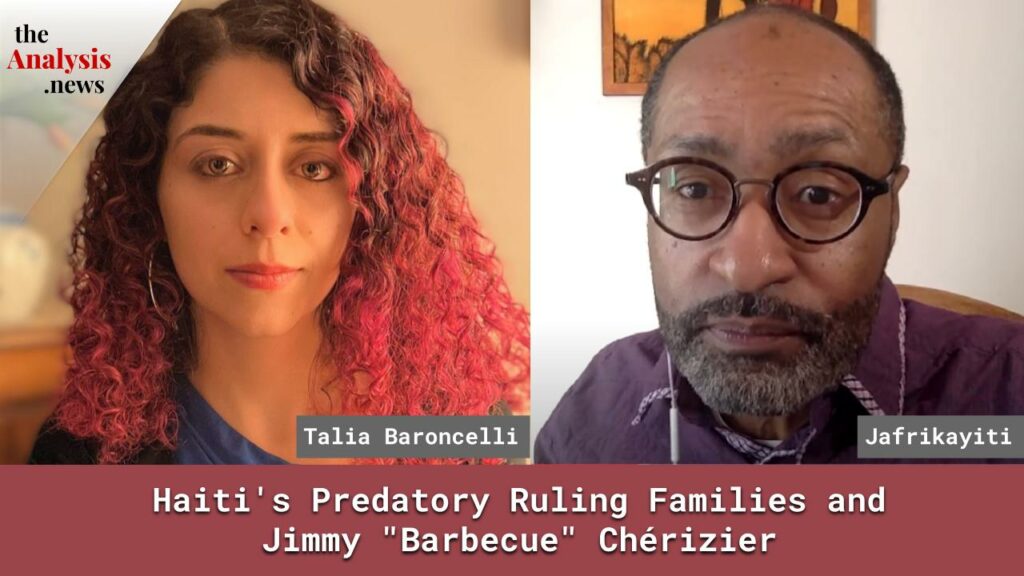
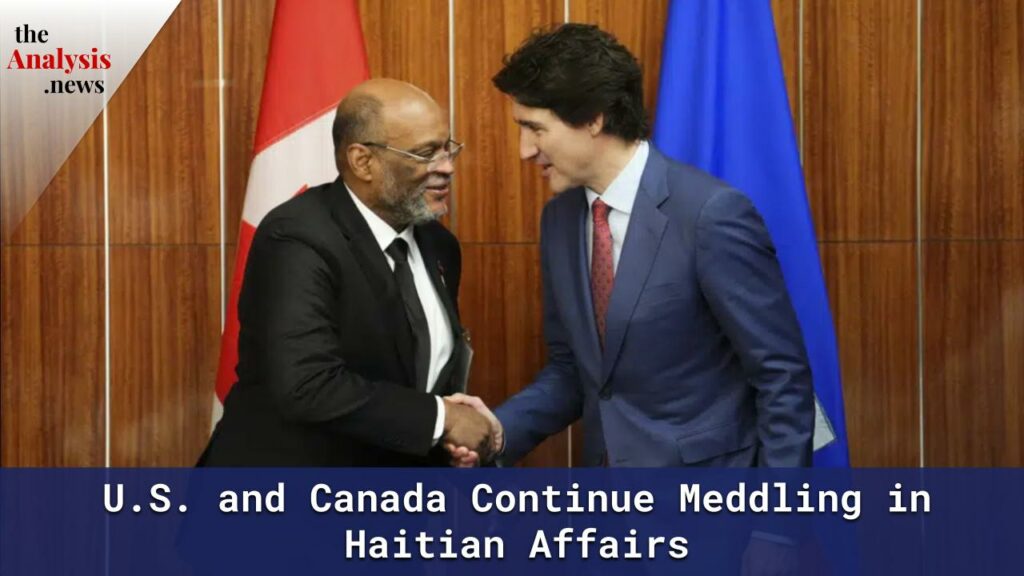
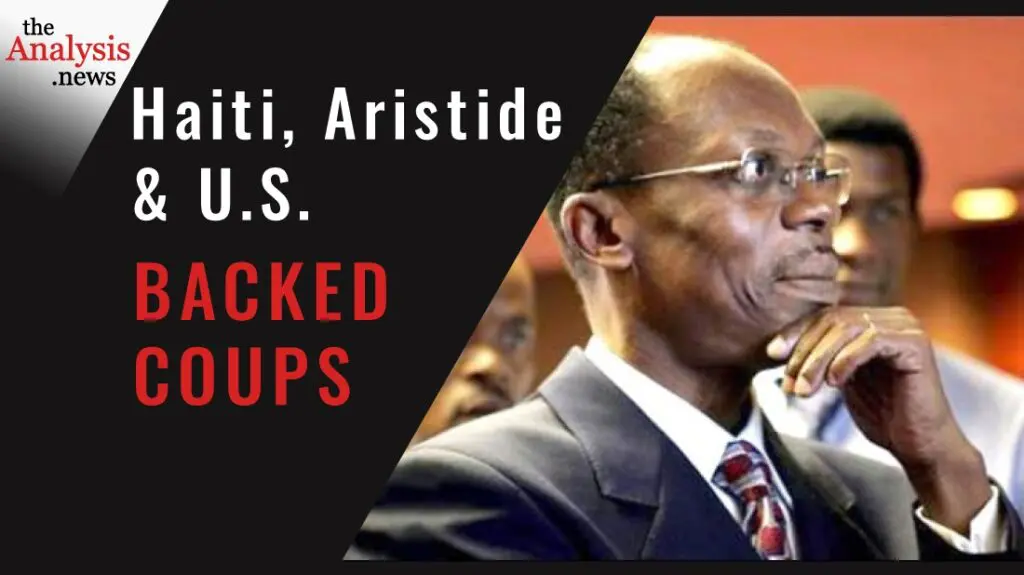

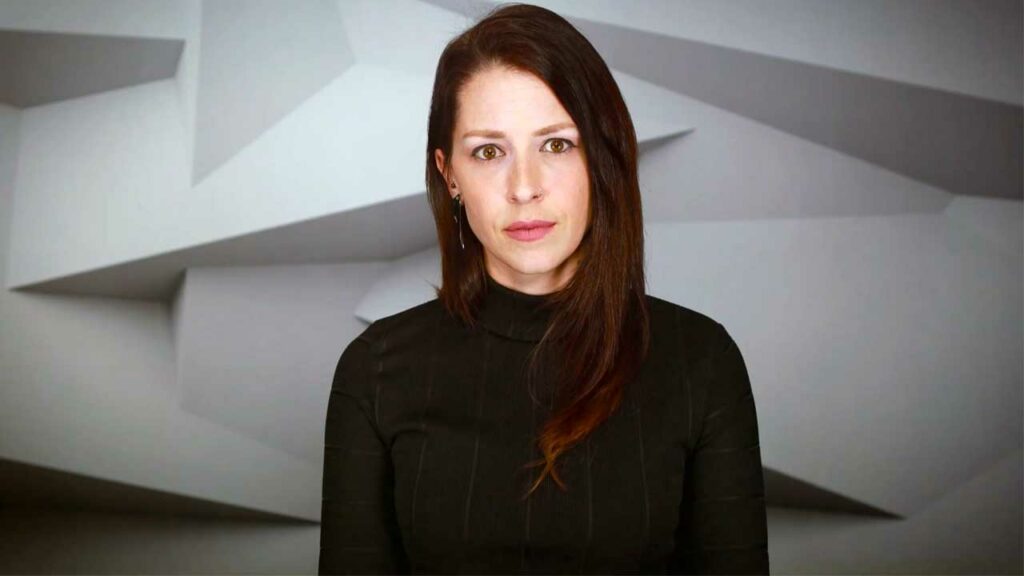
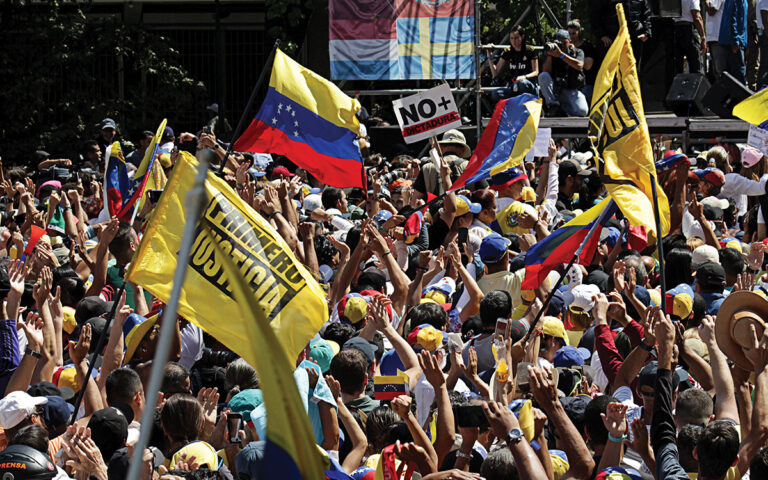

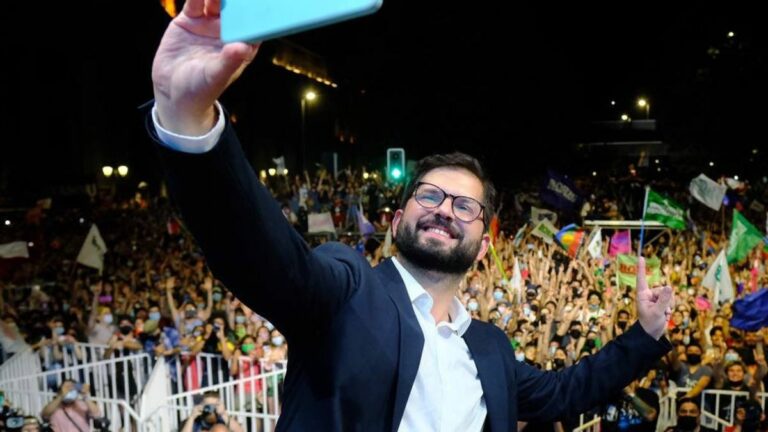
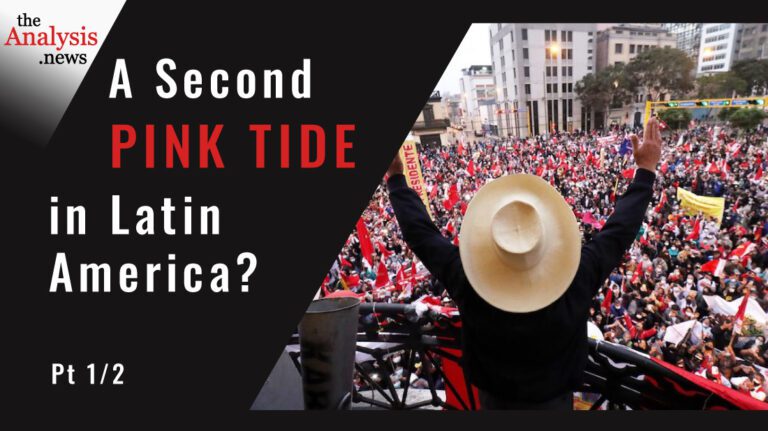
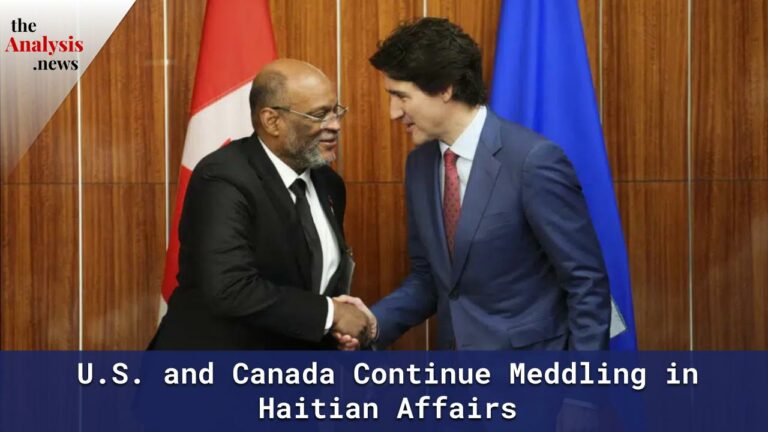
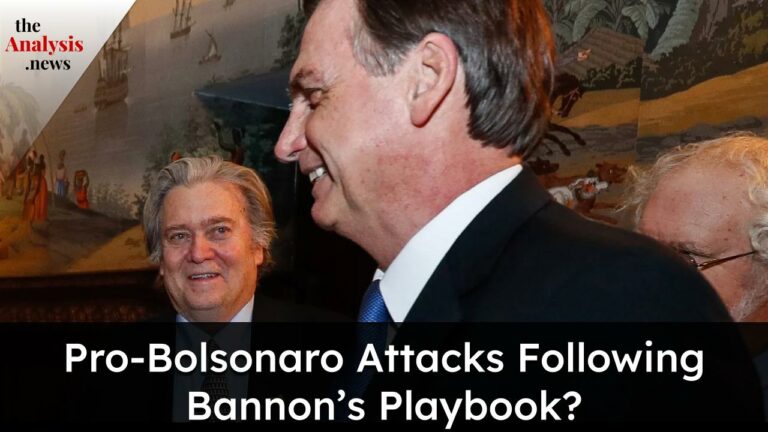
thanks
“Responsibility to protect” is widely misinterpreted… it is not the responsibility of anybody else to intervene to protect, it is the responsibility of each government to protect their own population, which most countries I believe signed on to. So, it is, in most countries’ international law (as “international law” is also widely misinterpreted – it is domestic law that governs how that country interacts with other countries, so the UK’s international law is different to the US’s international law etc) ratified and amends how that country should view the sovereignty of other countries… “we recognise official government of other country is sovereign, but we also recognise that they have a responsibility to protect their own people, and a failure to do so could see this sovereignty overturned by agreement within the UN security council”.
I don’t think Putin will fall for another R2P call again, not after 2011, when Sarkozy and Hillary Clinton made a deal with Libyan rebels to overthrow the government in return for large oil concessions, pretending it was something to do with the “Arab Spring”, with Hillary promising Putin it was just a no fly zone to protect civilians, but giving NATO command to the rebels to call in air strikes at will. So, R2P cannot be used to make an intervention legal, they would just have to go continue with doing it illegally,
Excellent, thank you!